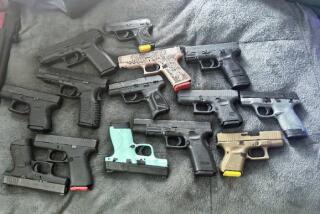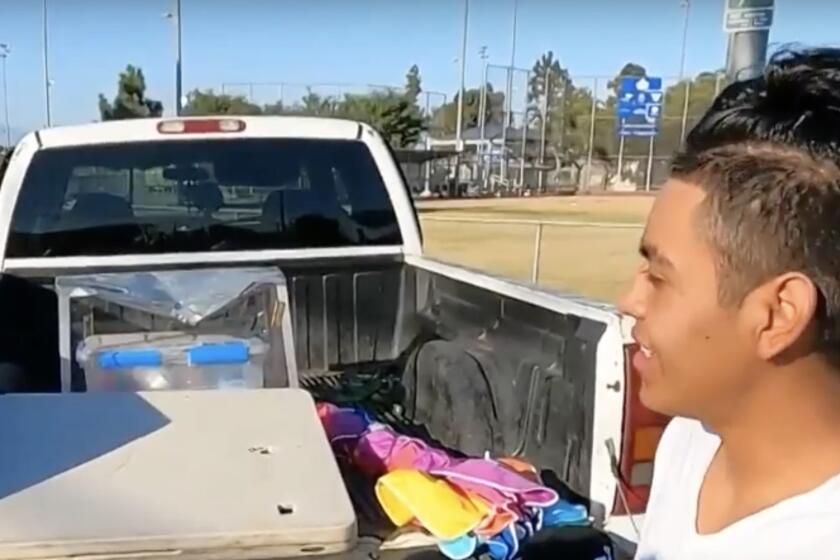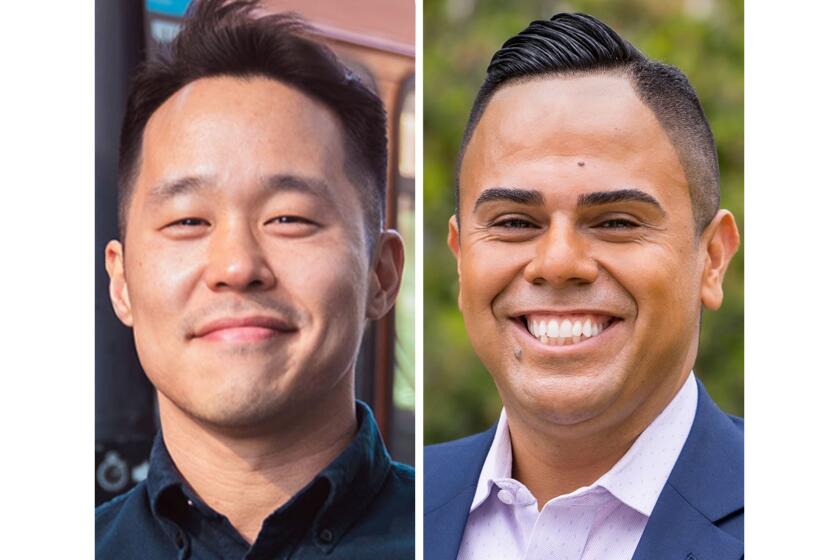LAPD collects nearly 780 firearms in latest gun buyback event
Los Angeles police collected nearly 780 firearms this weekend as part of the city’s latest gun buyback event, where residents could exchange weapons for grocery store gift cards. The program in L.A. dates to 2009, though other law enforcement agencies across the country have long used similar methods to get guns off the streets. Police officials say buybacks help drive down gun-related violence. But some experts question how effective these programs are.
What is a gun buyback?
Police-sponsored gun buybacks date back decades in the United States. They often generate new interest after high-profile violence. For example, the 2012 massacre of schoolchildren in Newtown, Conn., prompted many law enforcement agencies to bring back defunct buyback events or host them ahead of schedule.
In general, officials offer residents the chance to drop off unwanted weapons in exchange for cash or gift cards. The programs net everything from antique military rifles to sawed-off shotguns, semi-automatic weapons to orange-tipped replica weapons. In Los Angeles in 2012, someone turned in two rocket grenade launchers.
This weekend, L.A. residents received Ralphs gift cards for their guns: $100 for handguns, shotguns or rifles; and $200 for assault weapons. The LAPD operates on a “no questions asked” policy during its buyback events. Detectives will run a gun’s serial number to make sure the weapon wasn’t stolen, but they won’t check ballistics to see if it was used during a crime. LAPD Chief Charlie Beck said doing so would overwhelm the department’s crime lab and could discourage people from turning in the guns.
The weapons are then destroyed.
Do buybacks work?
Many crime analysts say there is no direct evidence that buyback events help drive down gun-related deaths or injuries, calling into question the effectiveness of such programs. One 2003 analysis by criminologist Anthony A. Braga — one of many such studies — said the programs “have no observable effect on either gun crime or gun-related injury rates.”
Critics say the guns that are turned into police are typically not the kind that are used during crimes. And though some police departments may check the weapons for potential criminal involvement, they don’t necessarily go after the people who turned them in.
Others say the buybacks allow residents to dump unwanted guns with little monetary value. An old revolver that might not draw much money from a gun dealer can be exchanged for a gift card of higher value.
Some critics dismiss the buyback events as merely public-relations opportunities for law enforcement agencies that allow police to show off large weapons caches as proof that they are having an effect on the fight against gun violence.
What does the LAPD say?
Beck defended the buybacks Monday, telling reporters the program was an “integral piece” of efforts that have led to the city’s decline in gun violence.
The chief acknowledged that the buybacks weren’t the only reason shootings have dropped in Los Angeles. He cited a collaborative effort that included improved gang intervention and smarter policing, among other factors.
The proof, Beck said, was in the statistics. The number of people shot in Los Angeles has been cut in half since the city launched its buyback program. The city was on pace to end 2014 with “well under” 1,000 shooting victims, he said.
“I’m very careful to say that [buybacks] are not the sole reason,” Beck said. “We have multiple layers of things that we do to prevent gun violence in Los Angeles, and one of them is the gun buyback.”
The key, the chief said, is preventing unwanted guns from falling into the wrong hands. Beck said the buybacks offer Angelenos a chance to safely dispose of their weapons, much as residents can when police collect old prescription medications.
Mayor Eric Garcetti, whose office sponsors the events with the LAPD, said the city would continue to host buybacks. Getting any unwanted gun off the street, he said, was a good thing.
“We can’t say that there’s causation, but there’s certainly correlation,” he said. “Even if it was only one life that we saved, this would be well worth this weekend.”
Twitter: @katemather
More to Read
Sign up for Essential California
The most important California stories and recommendations in your inbox every morning.
You may occasionally receive promotional content from the Los Angeles Times.











